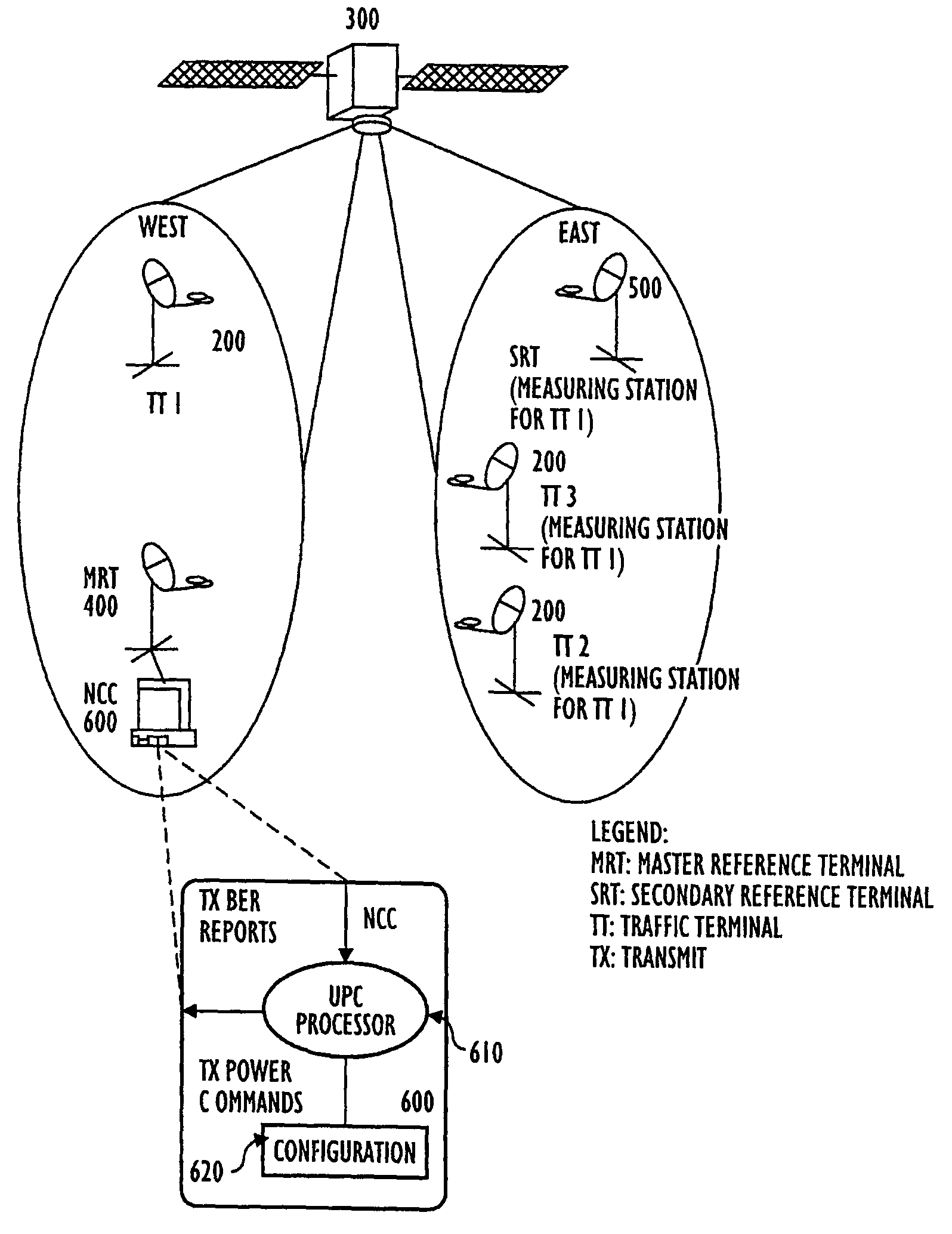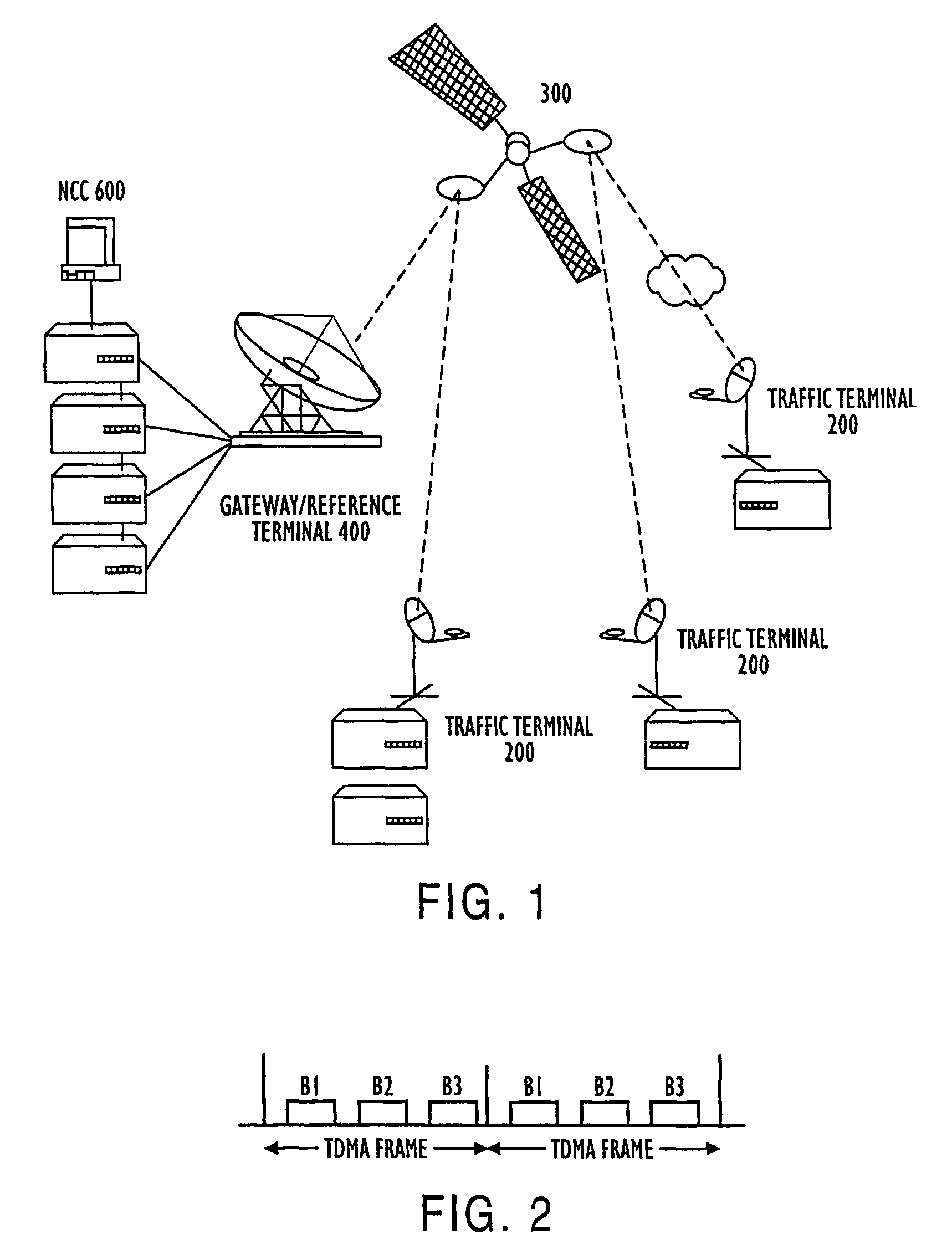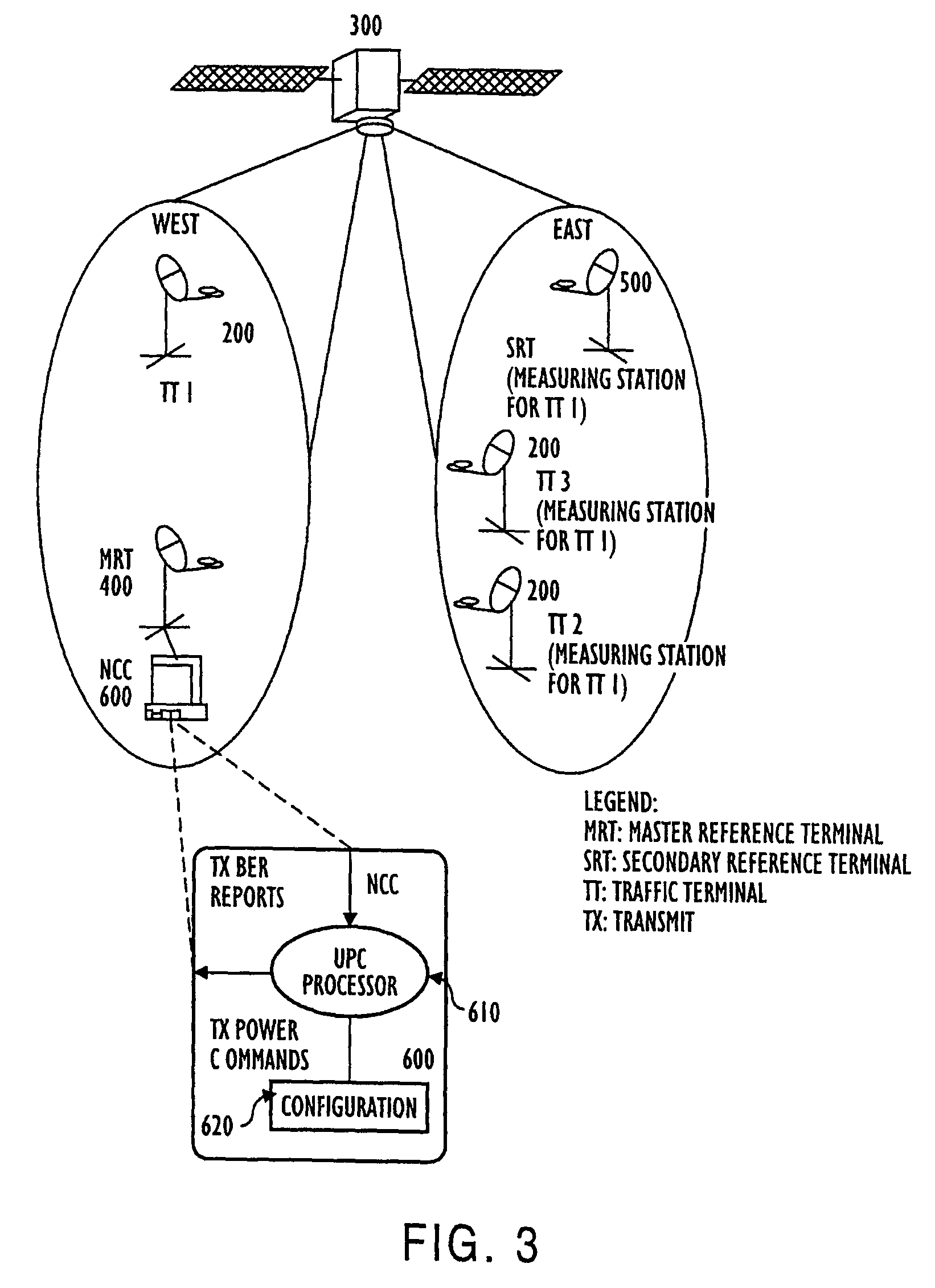Method for uplink power control for distributed satellite networks to compensate for rain fade
a distributed satellite network and power control technology, applied in power management, channel coding adaptation, synchronisation signal speed/phase control, etc., can solve the problems of reducing the maximum allowed power of the amplifier, the output of most commercially available amplifiers tends to degrade in terms of spectral side-lobe and shoulder regrowth, and the existing solution does not meet the needs of bandwidth-on-demand satellite networks with diverse earth station configurations. , to achieve the effect of preserving the overall transmi
- Summary
- Abstract
- Description
- Claims
- Application Information
AI Technical Summary
Benefits of technology
Problems solved by technology
Method used
Image
Examples
Embodiment Construction
[0030]As previously mentioned, the methods for performing Uplink Power Control (UPC) in burst mode satellite / wireless networks rely on measurement of transmitter (uplink) link quality at multiple receiver (downlink) nodes in the distributed network. The link quality measurements are transferred to a central Network Control Center (NCC) computer, which computer implements a novel method for iteratively adjusting the transmit power on a per-burst basis to thereby achieve improved target link quality. This method features optimal response loop time constants to compensate for fast weather induced uplink fades as well as slow degradations in transmit amplifier power due to temperature variations and aging. Moreover, the NCC computer employs an additional method to dynamically detect the transmit power amplifier compression point and ensure sufficient input-back-off (IBO) under all conditions.
[0031]FIG. 1 illustrates a model of the network architecture employing the novel methods accordi...
PUM
 Login to View More
Login to View More Abstract
Description
Claims
Application Information
 Login to View More
Login to View More - R&D
- Intellectual Property
- Life Sciences
- Materials
- Tech Scout
- Unparalleled Data Quality
- Higher Quality Content
- 60% Fewer Hallucinations
Browse by: Latest US Patents, China's latest patents, Technical Efficacy Thesaurus, Application Domain, Technology Topic, Popular Technical Reports.
© 2025 PatSnap. All rights reserved.Legal|Privacy policy|Modern Slavery Act Transparency Statement|Sitemap|About US| Contact US: help@patsnap.com



